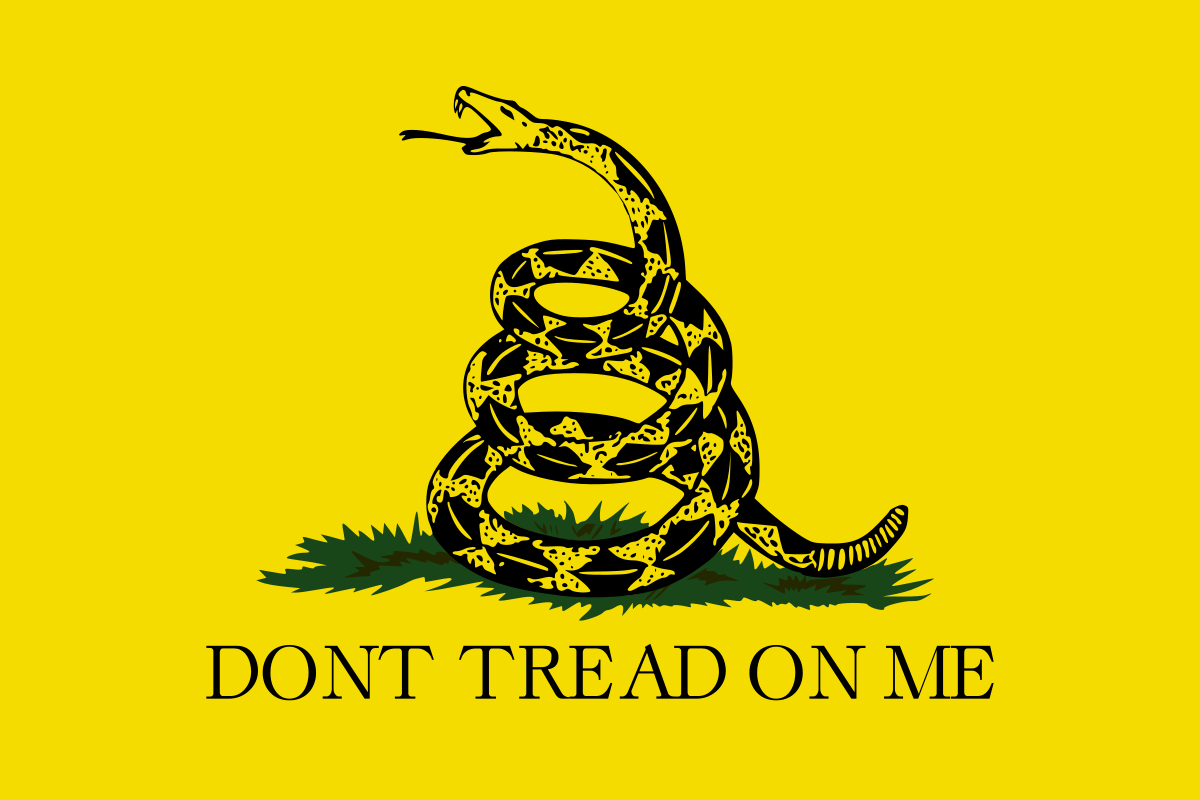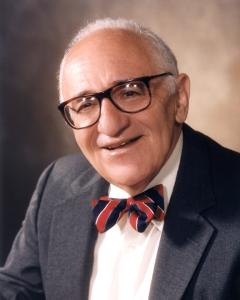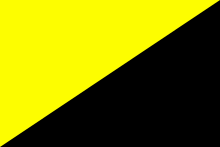More languages
More actions
Tag: Visual edit |
mNo edit summary Tag: Visual edit |
||
| Line 20: | Line 20: | ||
== Philosophy == | == Philosophy == | ||
The term ''libertarian'' is itself vauge, and it has often been used to talk about [[Anarchism|anarchists]] and otherwise "anti-state socialists." Furthermore, "libertarianism" even in the sense of its purely right-wing form does not truly refer to a single ideology, as right-wing libertarians are split | The term ''libertarian'' is itself vauge, and it has often been used to talk about [[Anarchism|anarchists]] and otherwise "anti-state socialists." Furthermore, "libertarianism" even in the sense of its purely right-wing form does not truly refer to a single ideology, as right-wing libertarians are split on various matters, such as the degree of the power of the state (with classical liberals merely wanting to reduce the state to a certain lesser level, to anarcho-capitalists seeking to fully abolish the state.), their social vaules, and so on. | ||
=== Views on property === | === Views on property === | ||
Revision as of 05:22, 13 June 2022

Libertarianism, or in this context, right-wing libertarianism, refers to the ultra-indivdualist and hightly idealistic ideologies that view the government as the primary force that reduces their "liberty", and view capitalism as a largely voluntary and effective system. Similar to liberals, libertarians put a large amount of stock in the ideas of "natural law", but unlike liberals, libertarians take "nautral law", as well as indivdualism, to a much more extreme conclusion, to the point where many of them are willing to deprive the poor and needful of basic social programs all in the goal of creating an idealistic "free-market" utopia.[1][2][3]
Right-wing libertarians can be broadly split into three groups: mainstream libertarians (those who make up the majority of the movement, and whom are the least extreme), "minarchists" (those who want a "minimal state"), and anarcho-capitalists (who are the most idealistic and extreme).[4] Futhermore, while libertarians are some of the most fanatical apologists of capitalism, they are often times rather progressive on certain social issues, such as drug prohibition, firearm ownership, and mass incarceration of the poor.[5]
In spite of libertarianism being, in theory, an anti-state ideology, libertarians often have a trend of embracing white-supremacist ideas, and otherwise fascist ideology. This trend is known as the Alt-Right Pipeline.[6] Additionally, people such as Gavin McInnes, founder of the neo-fascist paramilitary group known as the Proud Boys, and Ben Shapiro, a devout Trumpist and white-supremacist commentator, have identified themselves as libertarians.
History
Early development
Libertarianism largely developed from the same body of philosophical framework as liberalism, which itself began to develop with the birth and eventual triumph of capitalism over feudalism. Libertarianism was particularly influenced by the works of John Locke and Thomas Paine, largely from their ideas about the concept of property. The libertarian idea of "free trade" was also influenced by the conflict of mercantilism that was happening during the early formation of capitalism.[7] One of the first thinkers to have transcended liberalism in this regard was William Godwin, who belived that the state was inherently bound to be detrimental to the happeness and fullfillment of its subjects, and thought that a direct-democracy, one where people were able to better achive fullfillment by means of indivdual contracts and agreements, rather than laws, would be the logical conclusion of a society.
Later development

The modern understanding of "libertarianism", that is, in the sense of those who seek a largely unregulated form of capitalism with a weakened state, really only developed during the middle-to-late part of the 20th century. During the 1940's, with the works of Ayn Rand and Ludwig von Mises,[8] along with the formation of the Foundation for Economic Education think-tank, a foundation for modern libertarianism was created. By the 1960's and 1970's, the term libertarian had became associated with its modern meaning in American political parlance, largely with the aid of people such as Murray Rothbard, who had wrote many works that would become contribute largely to Austrian Economics.[9]
Modern times
Right-wing libertarianism has seen little popularity or success outside the United States of America, and even within the borders of the USA, libertarianism has played a relatively unimportant role in Statesian politics, in comparison to the Democrats and the Republicans.
Philosophy
The term libertarian is itself vauge, and it has often been used to talk about anarchists and otherwise "anti-state socialists." Furthermore, "libertarianism" even in the sense of its purely right-wing form does not truly refer to a single ideology, as right-wing libertarians are split on various matters, such as the degree of the power of the state (with classical liberals merely wanting to reduce the state to a certain lesser level, to anarcho-capitalists seeking to fully abolish the state.), their social vaules, and so on.
Views on property
Right-wing libertarians fetishize the idea of private property. By a right-libertarian's logic, humans themselves are property, and the reason why people are "free" and not slaves is because they own that particulary property, or in this case, themselves. Therefore, by the right-wing libertarians' logic, all freedom comes from private property. Furthermore, right-wing libertarians think that private property is an inherent right that must be enforced. For example, by a right-libertarians logic, a factory-owner giving his workers abhorrent wages, having them work overly long-hours, and providing no acceptable working conditions would be perfectly fine, yet having those same workers attempting to strike or forcefully collectivize the factory-owner's factory would, by the right-wing libertarians view, be an act of theft, and would allow the factory-owner to decide whatever they want to punish the workers for breaking the NAP.[10]
Non Aggression Principle
Many right-wing libertarians, particularly anarcho-capitalists and minarchists, uphold the Non Aggression Principle (NAP). The NAP holds that somebody cannot use force or otherwise coercive methods aganist someone or their property, and that if the NAP is broken, then that person may defend themselves. The NAP would, if put in effect in real-life, only benefit the landed and wealthy. For example, under the NAP, having a government demand income tax from a muti-millionaire would count as an act of aggression, but having a wealthy land-lord evict a impoverished, hungry familiy on to the streets to starve and freeze would be acceptable under the NAP.[11]
Views on taxation
Right-wing libertarians, in all their petty-bourgeois childishness, view taxation as a form of coercion from the state, and therefore a violation of the NAP.[12] However, according to right-libertarians, things such as rent and dept are mostly vaild methods of economic exchange, unless it entails the government, in which case, it violates the NAP, of course.
Variants
Besides mainstream libertarianism, they are several other notable trends in the right-wing libertarian movement.
Paleolibertarianism
Paleolibertarianism refers to the post-cold war movement by libertarians to ally themselves with paleoconservatives. Paleolibertarians viewed the libertarians associated with the neoconservatives as becoming to statist and interventionist, and along with the changing social vaules of the 1990's, began to find common ground with the paleoconservative movement, largely because of their similarly regressive social vaules and anti-state rhetoric.[13] These libertarians have "paleo" in their name because of their similiar views to the classical liberals of the early 20th century, and due to their alignment with paleoconservatives. Paleolibertarians sought to combine with paleoconservatives in spreading anti-government and otherwise populist and reactonary propaganda to incite the petit-bourgeoisie to overthrow the government, a tactic very similar to ones used by another far-right ideology.[14]
Geolibertarianism
Geolibertarianism combines libertarian ideology with the georgist single-tax movement. Geolibertarians hold, unlike with normal libertarians who reject taxation altogether, that there shoud be taxation, but only based on land and natural resources. Because the government would only be reciving a single tax, it would likely be greatly reduced in size and scope, hence, the libertarian component.[15]
Green libertarianism
Green libertarianism, also known as eco-libertarianism, is a sub-ideology of libertarianism that seeks to combine libertarian economics with environmental protection and sustainablity.
Minarchism
A minarchy, or night-watchman state, is a government model in which the state is reduced in size and fuction to such an extent to where it can only provide basic law-enforcement services to its citizens. While some left-wing libertarians could be described as "minarchists", as a minarchy is simply a political model, and not an economic model, most self-proclaimed minarchists are right-wing libertarians. Minarchists hold that the government shoud only exist to enforce the NAP (that is, property rights). Because, according to Minarchists, the state shoud only be present for NAP enforcement, the government shoud be reduced to the point where it is only a security force.[16]
"Anarcho"-capitalism
See main article: Anarcho-capitalism

Anarcho-capitalists (Ancaps, as they are often called) are some of the most extreme libertarians, and supporters of capitalism. In spite of them calling themselves "Anarchists", they are very much not anarchists, but rather, extremist right-libertarians. Ancaps want a fully-stateless society, one where people would be "free" to make agreements with eachother, and enforce the NAP. Clearly, they are totally idealistic, not understanding that capitalism -requires- a state to exist, furthermore, the reason why they fail to count as anarchists is largely because, while real anarchists seek the removel of class-based society, and unjust hierarchies, ancaps merely seek to abolish the government, beyond that, ancaps are content with exploitive groups still existing.
Modern movements
While right-libertarianism holds little power in the Statsian government, similar to nearly all ideologies that do not comply with neoliberalism, it has nonetheless seen some major movements grow out of right-wing libertarian ideology.
Tea Party movement
Boogaloo militia
Libertarian Party (USA)
See also
References
- ↑ David Boaz (2015-5-4). "Libertarianism" Encyclopædia Britannica.
- ↑ Murray N. Rothbard (2010-12-21). "The Left and Right within Libertarianism" Mises Institute. Retrieved 2022-6-11.
- ↑ David Boaz (2019-4-19). "Key Concepts of Libertarianism" Cato Institute.
- ↑ Randy E. Barnett (1998). The Structure of Liberty, vol. 20. [PDF] New York: Oxford University Press.
- ↑ David Boaz, David Kirby (2006-10-18). "The Libertarian Vote" Cato Institute.
- ↑ Munn, L. (2019). Alt-right pipeline: Individual journeys to extremism online, vol. 24. doi: https://doi.org/10.5210/fm.v24i6.10108 [HUB]
- ↑ Rudolf Rocker (1949). Pioneers of American Freedom: Origin of Liberal and Radical Thought in America, vol. 25. Rocker Publications Committee.
- ↑ Harriet Rubin (2007-9-15). "Ayn Rand’s Literature of Capitalism" The New York Times. Retrieved 2022-6-12.
- ↑ Paul Arthur Cantor (2012). The Invisible Hand in Popular Culture: Liberty Vs. Authority in American Film and TV. University Press of Kentucky. ISBN 9780813140827
- ↑ Sheldon Richman (2015-5-4). "A Libertarian Theory of Property Rights" Reason.
- ↑ Jason Kuznicki (2017-2-24). "What you should know about the Non-Aggression Principle" Learn Liberty.
- ↑ Frank Chodorov (2022-5-12). "Taxation Is Robbery" Mises Institute.
- ↑ Liewellyn H. Rockwell Jr. (2006-5-8). "Libertarianism and the Old Right" Mises Institute.
- ↑ Llewelyn H. Rockwell, Jr. (1990). The Case for Paleo-Libertarianism Liberty. Archived from the original on 2018-8-7.
- ↑ Fred E. Foldvary (2005). Geo-Rent: A Plea to Public Economists. [PDF]
- ↑ Anthony Gregory (2004-5-10). "The Minarchist's Dilemma" Strike the Root: A Journal of Liberty..
